Cleveland, Ohio, 1949 and when Charles Bergna and Cecil Yates hoisted their bouquets over their heads little did they know that it would be more than 50 years before another US pairing would do the same thing.
It was Bergna’s third win in Cleveland, his final career total was five wins; Yates was more prolific with 16 wins — but it was the end of the Golden Age for US Six Day riders.
It was Moscow in 2002 before the Stars and Stripes would fly for both riders at the end of a Six Day race — for 2000 Olympic sprint champion Marty Nothstein and Ryan Oelkers.
On the tenth anniversary of their win VeloVeritas thought it would be good to talk to Oelkers about his historic but largely overlooked win, his recent comeback as a master and his role in bringing cycling to the inner cities.
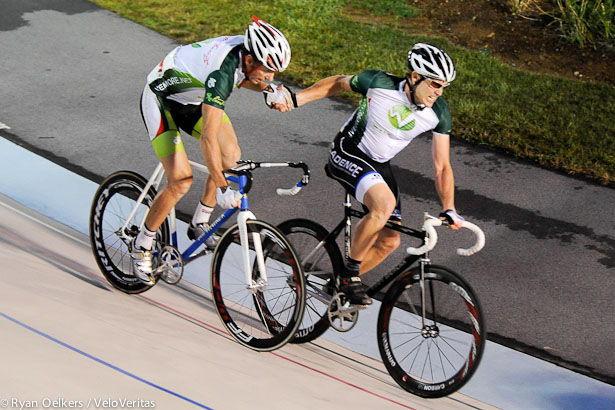
Moscow 2002, your first pro Six Day and your first win – how did you get the ride?
“Marty Nothstein made the transition from Olympic gold medal sprinter to endurance rider and was on the 6-day circuit that fall.
“I was working for a law firm that represented athletes (including Marty), but was laid off after the firm shut down their Athlete Representation Group.
“At that point, I had ridden some amateur sixes previously and quite a few madisons with Marty.
“Since I didn’t have a job at that point, I really had nothing to lose so I started training full-time again with the goal to race in Moscow with Marty.
“It was appealing to the organizers to have an American team in there – especially in Moscow – so my uncle, former professional cyclist and Olympian, Jack Simes, spoke to Henrik Elmgreen, the organizer of the Moscow Six Day (who is also the long-term organiser of the Copenhagen Six Day), and got me a start with Marty.”
What was the racing like – it must have been tough to win against the likes of Marvulli?
“It was hard since I didn’t have any racing in my legs and hadn’t been on the track in ages.
“However, we had a few things going for us.
“First, Marty was in terrific shape and was extremely motivated to do well.
“Second, the actual track is enormous (333 meters), especially for an indoor track – the size of the track made it easier to follow the teams.
“It would have been different racing if we were competing at Ghent 6-day, which is only 165 meters in length.
“Finally, it was a month after the previous six day, so some of the riders probably lost their track legs.
“It was great winning with Marty in Moscow especially against top riders such as Franco Marvulli and Alexander Aeschbach.
“In addition to those two in Moscow, you also had Frank Corvers, Lorenzo Lapage, Gerd Dörich, and even a young Iljo Keisse, who I think with Marvulli, are currently the two best riders on the circuit today.”
The Moscow track – they say it’s the fastest in the world?
“The track in Moscow is pretty amazing.
“It was built for the 1980 Olympics and is still in fantastic shape.
“It’s definitely one of the fastest tracks in the world – it’s pretty rare you see an indoor track that size (333 metres) – most are 250 metres or smaller.
“The size and steepness of the track bankings are impressive too.
“In fact, during introductions on the last night of Moscow, the Czech team crashed in front of us and I hit one of the riders as he was sliding down the track.
“Due to the steepness of the track, I never landed on the track banking – I just hit the apron or flat part of the track.
“The impact was so hard that I thought I had broken my hip and to make matters worse, Nothstein ended up using me as a pillow to brace his fall thus knocking the wind out of me!
“To this day, I still have a large bump on my hip.
“In fact my wife, Erin, calls it my third ass cheek; it’s a nice memento from Moscow.”
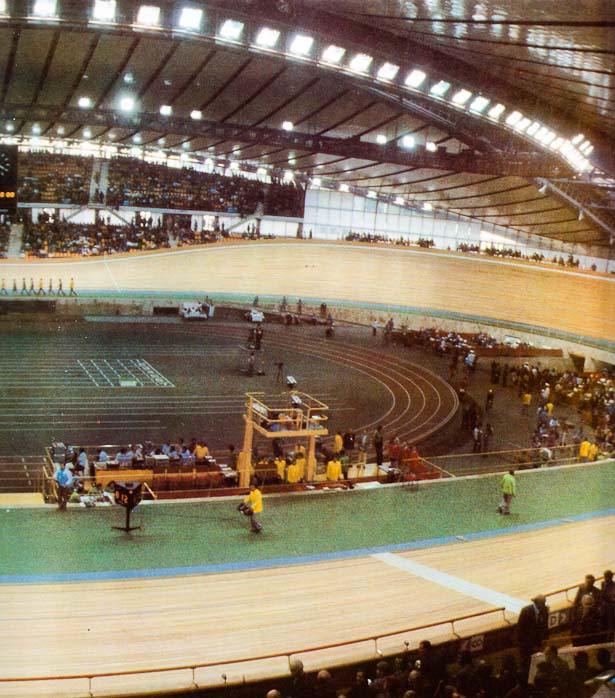
I heard it was brutally cold.
“Moscow was extremely cold and grey.
“One day during the event, the race organizers took all of the riders and staff down to Red Square.
“It was frigid; that side trip into Moscow was the only time we went outside during our trip since our accommodations were at the track.
“The rest of the time was spent eating, sleeping, training, and racing at the velodrome.”
Did the media pay much attention to your win?
“Our win was unique because it was the first American win in a European Six Day in over 50 years.
“It was covered by much of the cycling media; uiv.dk and the other cycling sites and publications.”
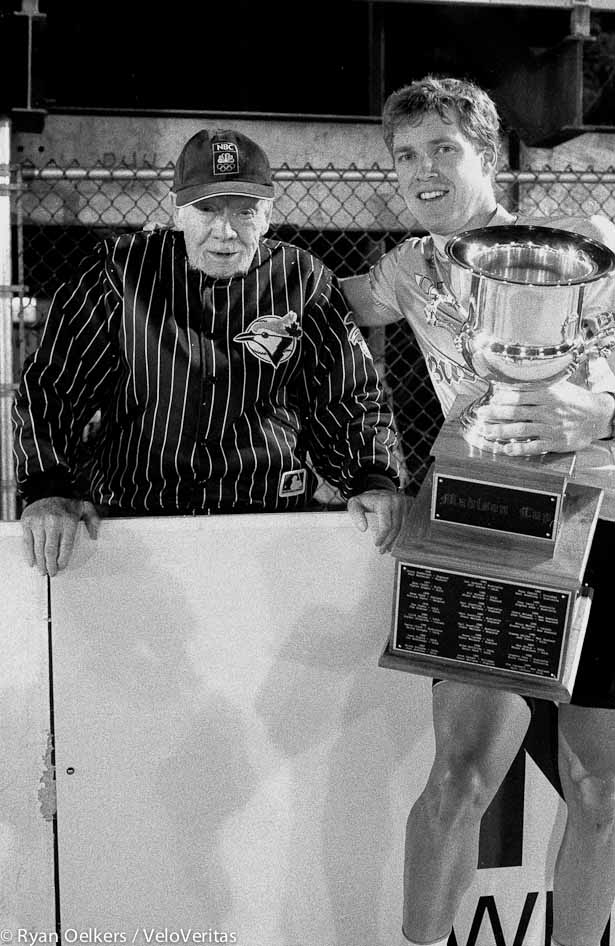
Did you ever think about what you were going to do when you stopped racing?
“I was always planning and thinking about what I was going to do after I stopped racing.
“While I was still competing as a professional, I decided to go back to school to get my undergraduate degree at Kutztown University.
“It was probably one of the best decisions I could have made – to have that college degree to fall back on once my racing career was finished.
“That decision to finish school probably gave my parents a few less grey hairs as well.
“I felt a huge sense of accomplishment by earning that degree while still racing at a high level.”
What made you call ‘time?’
“Fortunately, I haven’t really called “time” yet with my cycling.
“I raced a few times last year (both track and road) and did well considering we have a lot going on. I plan on doing some more races in 2012.
“Cycling is a great lifetime sport and I plan on riding (with some racing at times) for many more years to come.”
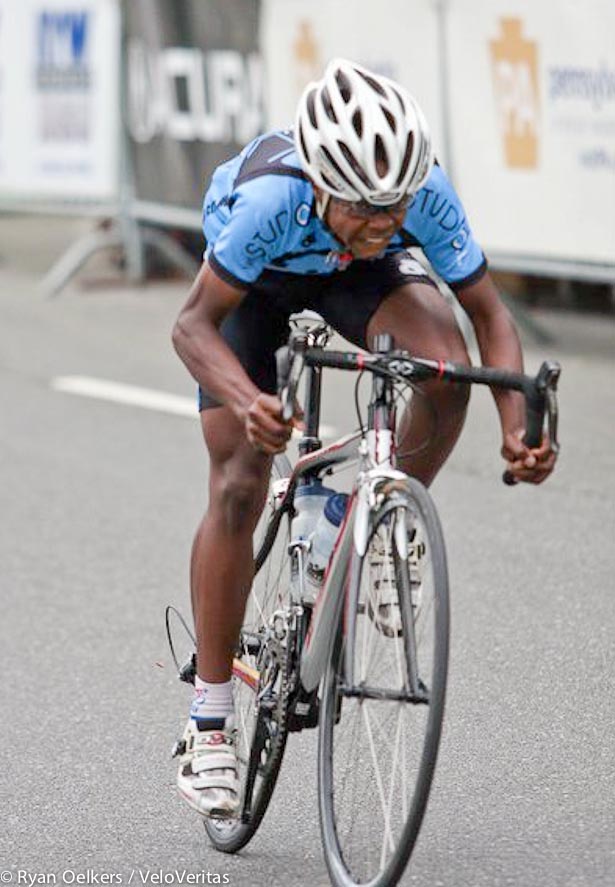
What do you do now – how did you get involved with the inner city kids?
“When my wife was teaching in the Philadelphia school district, she had Marty and I come out to her school to give a presentation on cycling.
“He brought his gold medal from the Sydney games, his bike which he use in the Olympics, and we also made a DVD for the presentation that showed his gold medal winning ride.
“You could see the immediate impact on the kids faces when they were passing the gold medal around or listening to Marty’s stories on how he set a goal, prepared, and finally won and accomplished his Olympic dream.
“That day at Erin’s school, I decided in the future, to start a program designed to get kids involved with competitive cycling.
“About four years after Marty’s school visit, I helped launch the Cadence Cycling Foundation with Jay Snider.”
What is the mission of Cadence Cycling Foundation?
“The Cadence Cycling Foundation (CCF) is a non-profit, sustainable youth development organization that uses competitive cycling as a means to connect with underserved youth, ages 9 – 18, and help them grow into healthy, happy, and responsible adults by increasing physical fitness and well-being, building life skills, and developing post high school education goals – whether pursuing a college education or vocational training.
“Currently we have 140 participants in the program with nine cycling teams operating in Philadelphia, one in Camden, New Jersey, and two in Wilmington, Delaware.
“The program is funded through grants from foundations, individual donors, CCF Board Members, as well as corporate sponsorships including AstraZeneca, Philadelphia Insurance, Acrow Corporation, Advanced Sports International, RestoreCore to name a few.
“In addition to financial contributions, we also rely heavily on in-kind donations from the cycling and triathlon community in the Philadelphia region.
“For those participants in our program who have a strong interest in competitive cycling and want to continue to be challenged, we introduce them into “feeder teams.”
“These are local USA Cycling sanctioned cycling clubs, in the Philadelphia area.
“Victoria Hanks, the Cadence Cycling Foundation Program Director, has a done a great job to create this amazing support system and community between the local cycling clubs (Quaker City Wheelmen’s Junior Mentor Initiative, Tri State Velo, and Peanut Butter & Co. Human Zoom) and our CCF participants.
“Not only do these clubs offer support in cycling by providing racing licenses, additional equipment, transportation to races, etc., they also become mentors/positive role models and provide numerous resources for the kids outside of cycling.”
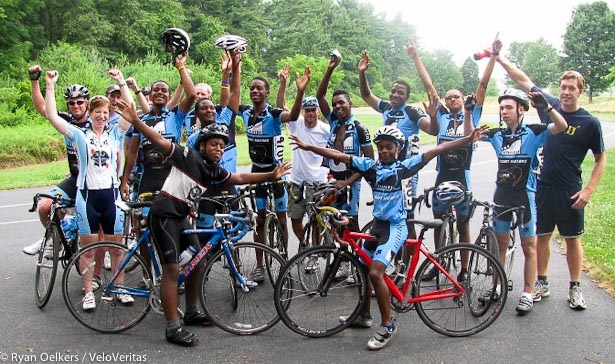
The 2011 US Masters National Madison title – how did that come about, and with Erin Hartwell, not Marty?
“Originally, I was supposed to ride with Marty.
“He asked me to ride with him last winter since Masters Nationals were in Trexlertown.
“At first, I was a bit hesitant to ride, but then thought it would be fun to ride with Marty again.
“Plus, it would give me a goal to shoot for and get back into racing shape.
“Just before the event, Marty pulled out and suggested I ride with Olympic and Worlds medallist, Erin Hartwell.
“The day before the madison championships, former professional and 6-day rider, Tommy Armstrong, crashed and broke his pelvis.
“His partner, Dave Bonser, needed a partner, asked Marty to ride, and they ended up getting third.
“It was a lot of fun to race and win with Erin; twenty years ago, he and I lived at the Olympic Training Centre together in Colorado Springs, so I thought it was amazing that we were still riding and competing together.”
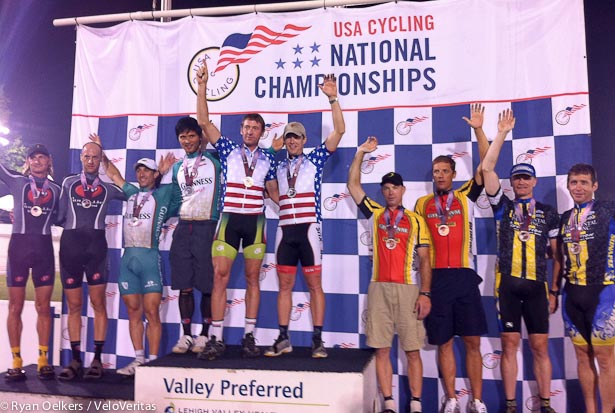
Moscow apart, which career ride are you most proud of?
“My first Madison Cup win at Trexlertown with New Zealander, Tim Carswell.
“The Madison Cup is one of the most prestigious track events in North America and it’s been held for more than 35 years.
“It was one of the first track events I ever saw and immediately I was drawn to that style of racing.
“I set a goal of winning that event even before I got into competitive cycling.
“I just saw it and knew I wanted to try to win the Madison Cup someday.
“By my second day of riding the track, my uncle Jack was already teaching me madison hand slings.”
And with the benefit of hindsight . . . ?
“I wouldn’t have changed a thing.
“I’m a pretty lucky guy who was able to see the world, make lifelong friends, and have a career in the cycling industry all because of this incredible sport.
“I’m hoping the Cadence Cycling Foundation will enable us to introduce cycling, and all of its benefits, to thousands of kids.
“Although the goal of our program is not to find Olympians, I bet you’ll see an Olympian or future professional come though our program in the near future.
“I would also love to have my three kids see me race one more madison – before I get really old – with my cousin, Jackie Simes – Jackie is a current professional competing at the Six Days now.”
What do you say, Jackie?



